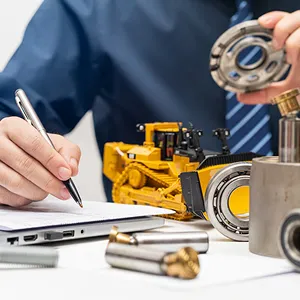Equipment Operated by CDL Drivers
Equipment Operated by CDL Drivers
Here’s a description of the type of equipment a CDL (Commercial Driver's License) driver typically operates
At Freight Mover Logistics, we specialize in connecting shippers with reliable carriers to ensure seamless freight transportation. With a commitment to excellence and a passion for logistics, we strive to provide tailored solutions that meet the diverse needs of our clients.
01
Tractors
Description: These are the front units of semi-trucks that pull trailers. They come in various configurations, including single and tandem axle designs.
Usage: Primarily used for long-haul trucking, transporting goods across states and regions.
02
Trailers
Description: Attached to tractors, trailers can vary in size and type, including:
Dry Van Trailers: Enclosed trailers used for transporting non-perishable goods.
Reefer Trailers: Refrigerated trailers for transporting perishable items requiring temperature control.
Flatbed Trailers: Open trailers used for heavy or oversized loads that cannot fit in a standard van.
Tankers: Used for transporting liquids, such as fuel or chemicals.
03
Box Trucks
Description: Also known as cube trucks, these vehicles have an enclosed cargo area and are typically used for local deliveries.
Usage: Common in moving companies and for deliveries in urban settings.
04
Dump Trucks
Description: These trucks have an open box bed that can be raised to allow materials to be dumped out.
Usage: Commonly used in construction and landscaping for transporting loose materials like gravel, sand, or dirt.
05
Hazmat Vehicles
Description: Specialized vehicles designed to transport hazardous materials safely.
Usage: Require additional training and certification due to the nature of the cargo.
06
Service Vehicles
Description: These include maintenance and repair vehicles that provide roadside assistance or transport tools and equipment.
Usage: Often used by companies that require on-site service capabilities.
Operating these vehicles requires a range of skills, including:

Driving Proficiency

Navigation Skills
Safety Awareness

Mechanical Knowledge
